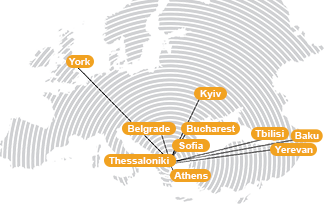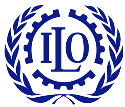The United Nations International Labour Organisation developed a global network to generate, collect and analyse information on socio-economic security and social security systems worldwide. Information is compiled in the Global Socio-Economic Security database, with the objective of developing standard measures of socio-economic security performance through a complementary set of indexes related to basic security.
The Socio-Economic Security (SES) Primary Database, which is one of the three core datasets that comprise the Global Socio-Economic Security database, contains information on seven forms of socio-economic security:
- Labour market security: Adequate employment and work opportunities, through high levels of employment ensured by macro-economic policy.
- Employment security: Protection against arbitrary dismissal, and employment stability compatible with economic dynamism.
- Work security (Occupational health and safety): Protection against accidents and illness at work, through safety and health regulations, regulated limits on working time, unsociable hours, and a reduction in stress at work.
- Job security: A niche designated as an occupation or "career", the opportunity to develop a sense of occupation.
- Skill reproduction security: Widespread opportunities to gain and retain skills, through innovative means as well as apprenticeships and employment training.
- Income security: Provision of adequate incomes.
- Representation security: Protection of collective voice in the labour market, through independent trade unions and employer associations and other bodies able to represent the interests of workers and working communities.
In the context of this project SEERC took over the role of the SES programme's regional correspondent for the countries of Albania, Bosnia, Bulgaria, Croatia, Cyprus, Kosovo, Former Yugoslav Republic of Macedonia, Romania, Serbia and Slovenia.






